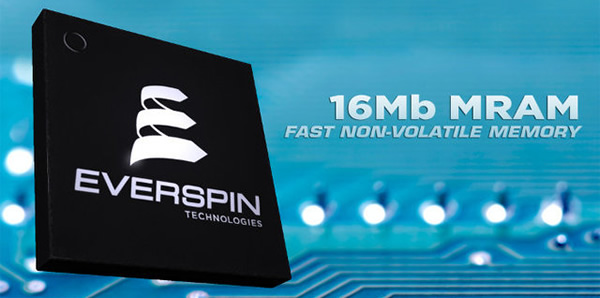Arizona-based Everspin Technologies announced yesterday (pdf) that it has become the world's first MRAM supplier, shipping its own ST-MRAM (Spin-Torque Magnetoresistive Random Access Memory) chips to select customers. The non-volatile storage medium is said to be 500 times faster than current SSDs, but also 50 times the price.
In terms of performance, ST-MRAM's specs look impressive: 1.6 billion IOPS, "up to" 3.2 GB/s of bandwidth and latency measured in nanoseconds. By comparison, the 512GB OCZ Vertex 4 offers only 120,000 IOPS, around 550MB/s throughput and latency more comfortably enumerated in microseconds than nanoseconds.

It's important to temper your excitement though – ST-MRAM has some definite shortcomings. Despite some promise as a potential NAND-based SSD usurper, Everspin isn't pitching the technology as a replacement for but rather a supplement to SSDs.
This is likely due in part to its prohibitive cost barrier. ComputerWorld says ST-MRAM is expected to be about 50 times more expensive than current flash offerings, but that's often how new technologies get started. Remember when SSDs cost thousands of dollars? Instead of $42,000 14GB SSDs though, we now have 128GB models that are practically being given away for $60-$70. Perhaps we can expect the same with MRAM over the next decade? Time will tell.
The other reason ST-MRAM may not be an ideal stand-in for SSDs just yet are its high power requirements. According to Everspin, the 64GB NAND chips commonly found in SSDs use about 80mW of power. Compare that to the 400mW required to fuel just a 1GB ST-MRAM chip and it's clear there's some progress to make before ST-MRAM can become a mainstream alternative for today's flash storage.